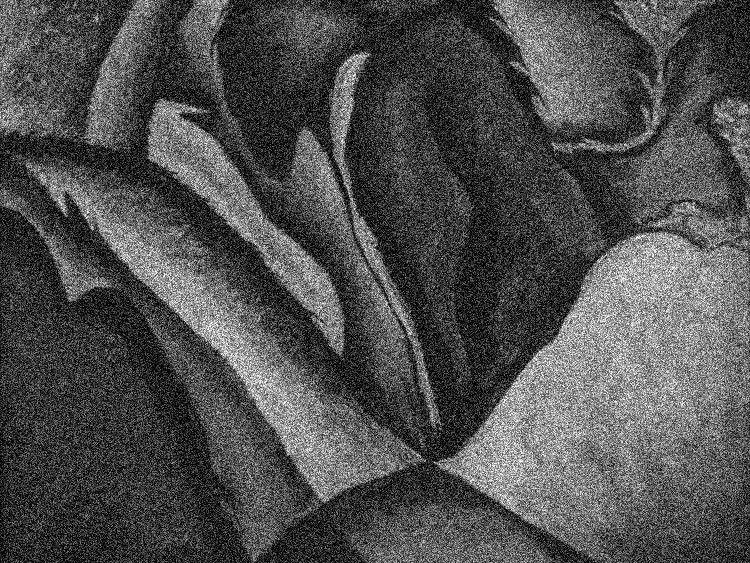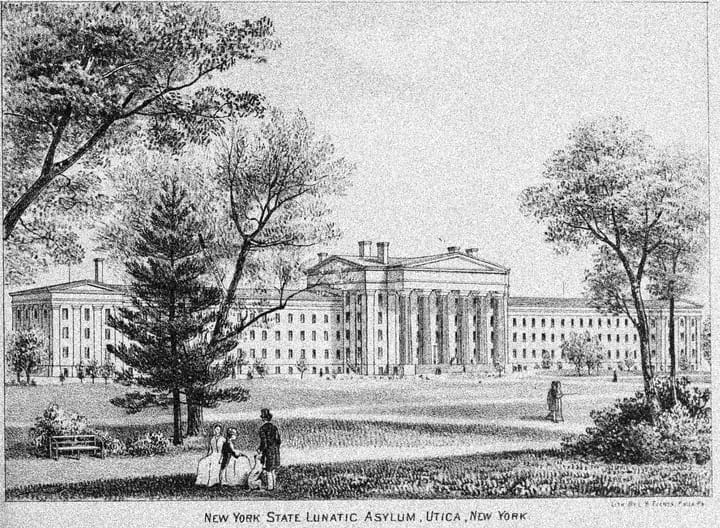The Pitfalls of Polemic, or How to Criticize the Crankiest Class of Critics
A review of Catherine Liu’s Virtue Hoarders.

A Review of Catherine Liu, Virtue Hoarders: The Case against the Professional Managerial Class (Minneapolis: University of Minnesota Press, 2021).
“It is obvious that people of this kind are in an anomalous position, and one might be tempted to write them off,” writes George Orwell of the interwar British middle classes, “but the real importance of this class is that they are the shock-absorbers of the bourgeoisie.” As managers, technicians, experts, and consultants, the professional-managerial class (PMC) are not the owners of the means of production, but they don’t fit within the working class either, instead occupying a class position “between labor and capital.” The anxiety of liminality pervades discourse from and about the professional-managerial class, especially analysis on the Left. Writers who devote serious attention to the place of the PMC in class struggle are often PMC members themselves, and their analysis is often embroiled in a crisis of identity: if one defines the PMC too loosely, they risk finding themselves on the wrong side of class struggle.
Such anxiety can be found in essays like Gabriel Winant’s “Professional-Managerial Chasm,” which outlines a politics built on a PMC/working-class alliance. “If the alliance with the PMC is how neoliberalism consolidated power,” Winant writes, “the downwardly mobile fragments of the PMC also have unmistakably provided the social basis for its most significant and energetic political challengers.” The task of the PMC today is to articulate and respond to its own discontent by offering “an alliance with the social class that will actually back us up—the working class.” “For all the cynicism and compromises that professional pretensions engender,” the essay concludes, “professional labor does carry a utopian seed—in the impulse to create and disseminate knowledge, to care for the sick, or to defend the rights and dignity of the democratic subject.” As expert managers, the PMC is essential to political organization; as trained educators, they alone can “articulate” the precarity wrought by neoliberalism; and as healers and advocates, the PMC carries the “utopian” kernel.
As moralizers during the Covid pandemic, corrupt gatekeepers of “elite” institutions, or the new leading edge of a reconceived unionism, the PMC is already “articulating” its position just fine. A bit too well, one might argue. Indeed, it often seems—as Winant describes—like the working class will be “backing up” the PMC when it finally decides to create history by confronting the conditions of its expertly-articulated precarity.
Catherine Liu’s recent book Virtue Hoarders: The Case Against the Professional Managerial Class aims to stop such thinking in its tracks. Liu critiques Winant by name, prefacing her book by stating that “My brief introduction to the PMC is polemical: for a recent ‘objective’ account of the term, one need look no further than Gabriel Winant’s ‘Professional Managerial Chasm.” (4) “Unlike Winant’s article,” Liu continues, “the work represented here is not a neutral piece of professional scholarship, refining terms and their definitions, insisting on nuance, and then finger-wagging at those on the Left who are allegedly uncivil, who cannot hold polite discussions, and who hurl epithets at their enemies like missiles. Winant believes in liberal virtue; I do not” (5).
Organized as a collection of short stand-alone essays, Virtue Hoarders analyzes PMC character with a series of case studies. In “The PMC Has Children,” she unpacks the anxiety surrounding child-rearing among affluent professionals, who desperately prepare their children to take and hold their place in the white-collar world, hyperconscious that they are facing an ever-narrowing window of opportunity. For the PMC, children are reservoirs for professional anxiety: “PMC mothers have to do prenatal yoga while setting up intrauterine Mozart streams on pregnant bellies. Preparing for a child is just the beginning of a tortuous and expensive preoccupation for today’s elites” (35).
In “The PMC Reads a Book,” a review of To Kill a Mockingbird sure to delight any critic of pedantic SAT questions, Liu observes that “Despite its veneer of detached sophistication, the PMC embraces melodrama and sentimentality when dealing with inequality, imagining powerless people as innocent victims who it alone is uniquely able to ‘help.’” In short, she concludes, “The PMC desperately wants to be a gender-neutral Atticus Finch” (74).
Liu continues her critique of the PMC’s purported intellectual superiority in her chapter “The PMC Has Sex,” wherein she draws a near-linear path from hole-in-the-sheet puritanism to contemporary consent culture, observing how the PMC’s self-proclaimed “sexual revolution” was “a revolution that made orgasm and pleasure objects of PMC moral and pedagogical refinement” (61). “To be part of this revolution, you had to accept that the private experiences and lives of elite PMC people were the most important sites of meaningful political and cultural activity” (61). For the PMC, Liu argues, good sex is not centered around pleasure but neo-puritan ideals of intellectual purity and virtuous individualism: “In sex-positive PMC feminism, the best sex could be had in a social vacuum: it would take place in a comfortable bed with clean sheets, between consenting partners free of economic or social anxiety. In such an optimal situation, a woman could finger her clitoris, labia, or perineum in a leisurely manner, all the while communicating her needs and desires to a sensitive and receptive partner. Good sex became suffused with the logic of information and communication they upon which ideals of consent are built” (61-62).
Liu’s portrait of the PMC is uncompromising: sanctimonious and puritan, the PMC of Liu’s book imagine themselves saviors of the world, delight in melodramatic scandals, and assiduously poison themselves with raw water and organic carrots they have fertilized by composting their own fiber-enriched feces. Whether it is “returning to the ‘land’ under the aegis of new communalism to keto diets, only drinking sewage-laden raw water, and intermittent fasting,” she writes, even “their self-indulgence is always a kind of sanctimonious austerity” (55). Forget whether the PMC has anything concrete to contribute to political struggle; who the hell would want these people on their side?
In her conclusion, Liu writes, “I hope that this short introduction to the false consciousness of a class that still wants to believe itself a heroic and virtuous political actor will strengthen the reader’s resolve to reject PMC politics while building on this critique of its reactionary class politics” (75). While no doubt successful in this task, Virtue Hoarders brings its critique to bear by conflating the PMC as a class with a particular consumer ethos. Although thoroughly enjoyable, what tends to get lost in such a critique is the primary structural question: why does the PMC tend to collaborate with the bosses—or, at least, against workers?
Because the targets of Virtue Hoarders are reducible to a collage of personal affects, it can be unclear at times who the real target of its critique is. Overanxious parents? Those responsible for perpetuating parental anxiety? The sanctimonious parents who lord their hyper-refined child-rearing practices over those less assiduous than they are (even if all of these groups, along with their purported victims, are ultimately the same people)? Beyond the question of the intended object of critique, one wonders whether it is necessary to consider prenatal yoga mats or G-spot stimulation toys when analyzing PMC politics. Ridicule has its strategic function, but ruthlessly picking apart the idiocy of PMC consumer culture does not necessarily make strategic political thinking any clearer.
Don’t get me wrong: I despise PMC culture, and particularly its influence on the Left, as much as Liu. And polemic can be fun, cathartic, and necessary. But polemic also needs to hit its target. We need the blows to land, and for the PMC to stay on the mat. The characters we meet in Virtue Hoarders include cynical financial analysts, co-op tending Swarthmore College professors, and woke campus activists. Winant’s PMC, on the other hand, includes nurses and teachers—skilled professionals who might sometimes bask in their own “virtue” but whom the Left should be hesitant to dismiss. Winant and sympathizers can easily point to the 2018 teachers’ strikes and say, “This is who we’re talking about. Who are you talking about?”
“Refining terms and their definitions” and “insisting on nuance” have indeed been weaponized by the PMC, but they’re also necessary tasks to dismantle their influence (let’s not cede analysis to these people). The PMC, for instance, is clearly a term in need of some refinement. As Dominic King writes of the Google union,
Teachers are only PMC in a residual sense: they still need credentials, but haven’t materially benefitted from neoliberal restructuring as tech workers have. When teachers strike, it’s for higher wages and more classroom resources. Flowing as they do from a specific corporate culture, tech worker demands don’t always challenge and thereby extract concessions from management but rather often demonstrate a desire to be management, i.e. to have control over hiring and firing practices, to be more just and inclusive than existing managers, etc.
Teachers don’t strike for classroom resources and nurses don’t organize for Medicare for All because they’re carrying some “utopian” kernel. They do so because these demands flow from their immediate workplace experience. What Winant praises in recent “lower PMC” organizing is simply what happens when working people assert power at their workplaces. This as opposed to the “social justice” organizing of many tech, journalism, and academic unions, which often seem like they are systematically avoiding bread and butter demands and structural reforms.
This kind of distinction-making seems necessary to really dismantle positions like Winant’s, and it’s one easily papered over in the onslaught of polemic. Even more important, however, is an historical understanding of the rise of middle-class influence on the Left, as one finds, for instance, in Dustin Guastella’s “White-Collar Populism,” or even in parts of Liu’s own recent Catalyst article, “The Apotheosis of the Professional Class.” Unions and mass membership organizations used to bear influence over a civic universe within which politicians were actually responsive to popular pressure. As both were gutted in the neoliberal period, institutions of the middle classes, including academia, NGOs, and the media, gained more control over left-liberal discourse. The problem today is not simply that working-class institutions are still at a nadir of their power; it’s also that the PMC is trying to LARP as the subject of history. And no amount of ridiculing their absurd culture can replace a thorough historical understanding of this dynamic.
As Liu shows, the PMC is attempting to reshape mass culture to comport with its own status anxiety. But in so doing, the PMC is simply carrying out its original function—managing discontent and helping a broken society continue limping into the future under the weight of its contradictions. Without a doubt, PMC culture is a hellscape: inhuman, cold, seemingly hostile to life itself. But spelling this out directly risks psychologizing the whole situation, making it seem like we’re dealing with a particularly demented set of borderline psychotics. We are, but pointing that out helps us about as much as pointing out to a psychotic that they’re acting psychotically. Polemic, in other words, is no substitute for analysis and history. To reapply Jane McAlevey’s well-known dictum about organizing, there are “no shortcuts” to undermining the influence of the PMC.
■
Taylor Hines teaches at Arizona State University.



